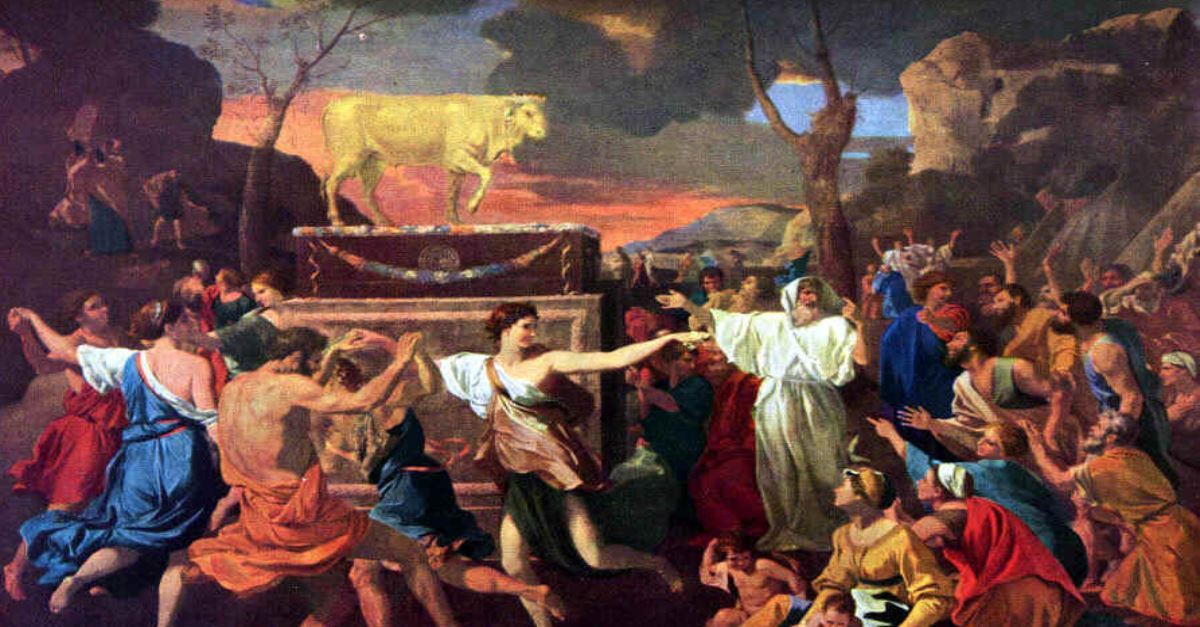What Is Idolatry in the Bible? Its Definition and Significance
Biblical stories of the Old Testament warn us about the sin of idolatry. Discover the significance of idolatry in the Bible and scripture quotes about its meaning.

Idolatry Definition
According to the Easton's Bible Dictionary, Idolatry is "image-worship or divine honour paid to any created object." Paul describes the origin of idolatry in Romans 1:21-25: men forsook God, and sank into ignorance and moral corruption (Romans 1:28).
The forms of idolatry are,
Idolatry in the Bible
In Scripture, idolatry is regarded as of heathen origin, and as being imported among the Hebrews through contact with heathen nations. The first allusion to idolatry is in the account of Rachel stealing her father's teraphim ( Genesis 31:19 ), which were the relics of the worship of other gods by Laban's progenitors "on the other side of the river in old time" ( Joshua 24:2 ). During their long residence in Egypt the Hebrews fell into idolatry, and it was long before they were delivered from it ( Joshua 24:14 ; Ezekiel 20:7 ). Many a token of God's displeasure fell upon them because of this sin.
The first and second commandments are directed against idolatry of every form. Individuals and communities were equally amenable to the rigorous code. The individual offender was devoted to destruction ( Exodus 22:20 ). His nearest relatives were not only bound to denounce him and deliver him up to punishment ( Deuteronomy 13:20-10 ), but their hands were to strike the first blow when, on the evidence of two witnesses at least, he was stoned ( Deuteronomy 17:2-7 ). To attempt to seduce others to false worship was a crime of equal enormity ( 13:6-10 ). An idolatrous nation shared the same fate.
No facts are more strongly declared in the Old Testament than that the extermination of the Canaanites was the punishment of their idolatry ( Exodus 34:15 Exodus 34:16 ; Deuteronomy 7 ; 12:29-31 ; 20:17), and that the calamities of the Israelites were due to the same cause ( Jeremiah 2:17 ). "A city guilty of idolatry was looked upon as a cancer in the state; it was considered to be in rebellion, and treated according to the laws of war. Its inhabitants and all their cattle were put to death." Jehovah was the theocratic King of Israel, the civil Head of the commonwealth, and therefore to an Israelite idolatry was a state offence ( 1 Samuel 15:23 ), high treason. On taking possession of the land, the Jews were commanded to destroy all traces of every kind of the existing idolatry of the Canaanites ( Exodus 23:24 Exodus 23:32 ; 34:13 ; Deuteronomy 7:5 Deuteronomy 7:25 ; 12:1-3 ).
The history of Israel is clearly outlined in the Bible. For generation after generation, they repeatedly fell prey to being drawn away from the Lord to serve false gods. This did not only happen to the common people, but to their kings, priests and prophets, as well. And they shall turn away their ears from the truth, and shall be turned unto fables (II Tim. 4:4).
The sin of idolatry, or worshiping other gods, is in violation of the Law of God. As a matter of fact, it breaks the first two of the Ten Commandments. It is important to remember that disobedience is the original sin and therefore encompasses all sin.
I am the LORD thy God, which have brought thee out of the land of Egypt, out of the house of bondage. Thou shalt have no other gods before Me. Thou shalt not make unto thee any graven image, or any likeness of any thing that is in heaven above, or that is in the earth beneath, or that is in the water under the earth (Ex. 20:2-4).
